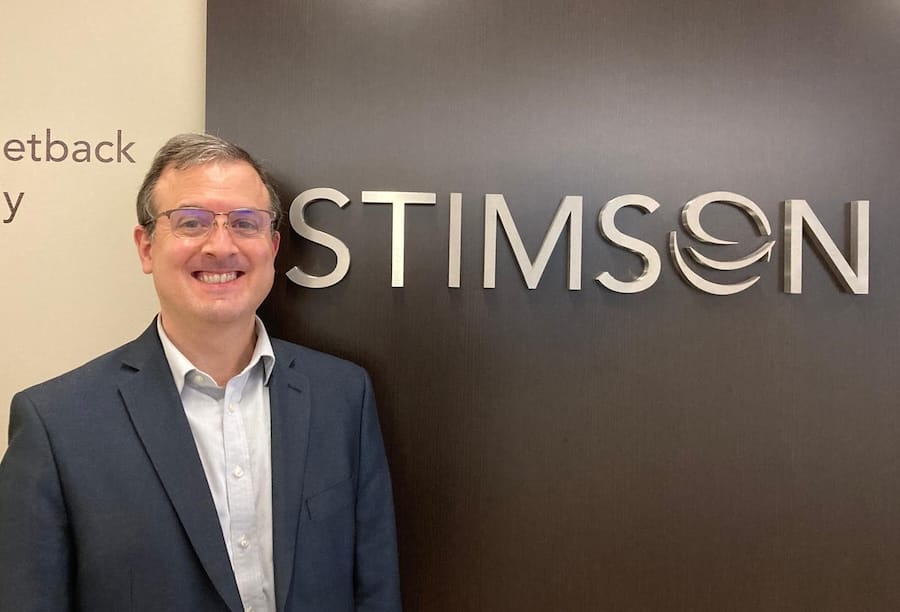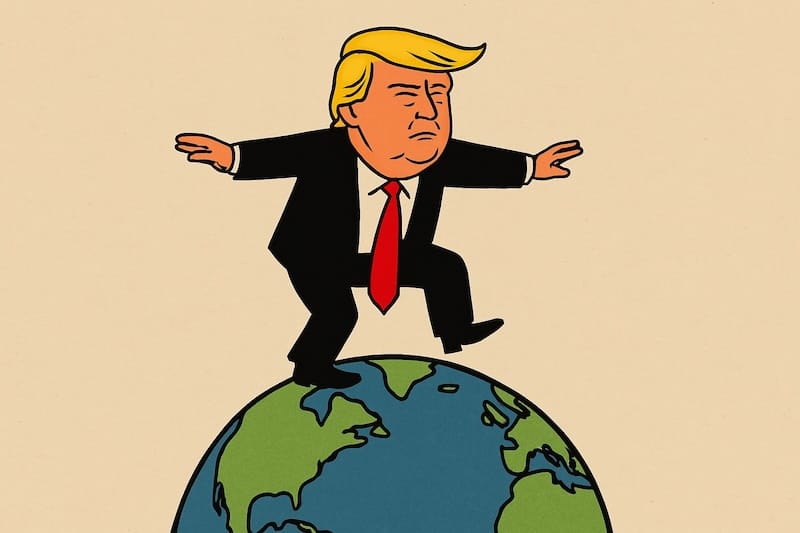AI raises concerns for its potential to change the 'nature of warfare', says Stimson Center director
In an interview with Correio Sabiá, Richard Ponzio also mentioned that the technology has a range of positive applications and advocated for the creation of a global agency for AI.

Senior Fellow and Director of the Global Governance, Justice & Security Program at the Stimson Center, Richard Ponzio, stated in an interview with Correio Sabiá on October 2, 2024, that AI (artificial intelligence) has many beneficial applications for humanity—both in strengthening existing initiatives and in finding new ways to promote peace, security, and human rights. However, its ability to "change the nature of war," particularly with weapons of mass destruction, is cause for concern.
In addition to its military potential, there are fears regarding the unequal distribution of technology between countries, the power to infringe on human rights, and even the possibility of interfering in elections, affecting the self-determination of different peoples. Therefore, regulating AI is necessary, but discussions are still early. The UN (United Nations) Pact for the Future already references the use of this technology, and Ponzio proposes the creation of a global, pluralistic agency to avoid repeating past mistakes.
"There is a whole range of positive applications, but the fear is that this new autonomous technology could change the nature of war. If we apply it to weapons of mass destruction, in particular, it could become terrifying very quickly," he stated.
Autonomous weapons would be a type of "killer robots." In other words, autonomy and independence for military technology. According to Ponzio, this would require the need for a global treaty addressing lethal autonomous weapons.
- The Stimson Center is a foreign relations think tank that promotes international security and shared prosperity through applied research and global engagement.
- Richard Ponzio is an expert capable of commenting on best governance practices, particularly the role of multilateral institutions.
- The Pact for the Future is a document signed by 187 UN member states, containing 56 action items for a common future on the planet, as detailed in this report.
Ponzio advocates for the creation of an International AI Agency
To prevent the risks of potential misuse of technology, the expert advocated for strengthening multilateral organizations and even creating a new entity, which would be the IA² (International AI Agency).
"We need to be leaping over a body similar to what we set up in the 1950s to regulate weapons, specifically nuclear weapons. Later, other weapons of mass destruction. This was the International Atomic Energy Agency. We are proposing something similar, called the International AI Agency, IA²," he said.
Regarding what we already have in concrete terms, Ponzio detailed that some relevant mentions of AI occur in Chapters 2 (International Peace and Security) and 5 (Transforming Global Governance) of the Pact for the Future. Chapter 5 discusses the Security Council, the Peacebuilding Commission, and even the General Assembly.
Furthermore, Objective No. 5 of the Global Digital Compact (an Annex of the Pact for the Future) focuses on leveraging AI and AI governance issues for the benefit of humanity. The Global Digital Compact is a key instrument adopted at the Summit of the Future, too.
Obstacles and Challenges to Overcome
One obstacle to reaching agreements on AI is that "there is no global consensus on the types of regulation," as the expert himself admits. There are many differing views on the same issue.
"We are really in the early stages of these discussions," he said.
Another concern is the "fear that if we give too strong a mandate to any multilateral institution, it could stifle innovation and progress."
In this case, however, Ponzio states that "if these technologies are well monitored and leveraged, their capabilities are immense." He added:
"In any case, you will not be able to prevent certain countries and certain corporations from developing them. On the contrary. It's like globalization: we should seek to better manage globalization [rather than avoid it]. We need to establish outcomes that promote equity, social justice, and environmental balance."
More Topics on AI
- Interference in Political Campaigns
AI takes interference in the electoral campaigns of other countries to another level. In other words, foreign influence on electoral outcomes affects the self-determination of different nations. It would be similar to what we already see with bots.
- Authoritarian Governments and Citizen Surveillance
Authoritarian governments can use these technologies to monitor their own citizens, amplifying the repression they already exert over their populations.
- Lack of Global Participation in Technology Matters
In addition to the current lack of regulatory capacity, there is unequal access to technology. Developed countries lead the advancement of AI while developing countries remain on the sidelines of discussions.
"The report from the AI advisory body stated that 118 countries are not participating in any international forum," Ponzio said. "There are at least 7 known forums that have emerged overnight," he noted.
British led a meeting in November 2023, followed by a gathering in Seoul (South Korea). In February 2025, an AI Action Summit will take place in France.
"Still, it’s a very limited number [of countries]. These are very powerful countries that are at the forefront of these technologies. So, 7 countries dominate this space in the 7 forums. But 118 member states are not participating in any of them," he stated.
"It's here that the UN comes in. The fact that we are discussing these topics very seriously in the Global Digital Pact is a first step. But this is merely a non-binding principles pact, with aspirational goals and commitments. It’s time to move towards serious governance structures that are inclusive and avoid the mistakes we made when we established the Security Council in 1945," he added.
"What are the important decisions now? We will need decades to undo the mistakes we make now, because it is not inclusive, it is not seen as legitimate, and it does not include all the key stakeholders in this new and powerful set of technologies connected to AI," he said.
- Human Rights and Citizens' Digital Rights
Human rights are at the center of discussions. For the use of AI, Ponzio states that we need to apply civil political conventions, human rights, and economic, social, and cultural conventions, all of which date back to the 1970s and "need to be updated and improved for the digital age."
"Even more complicated than just digital rights is understanding how AI, with all its incredible functionalities, powers, and applications, can infringe on people's fundamental human rights, take their identities, and make things really difficult."
Autor

Jornalista e empreendedor. Criador/CEO do Correio Sabiá. Emerging Media Leader (2020) pelo ICFJ. Cobriu a Presidência da República.
Inscreva-se nas newsletters do Correio Sabiá.
Mantenha-se atualizado com nossa coleção selecionada das principais matérias.



